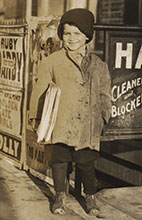
PROLOGUE
Pingshu. It's what the Chinese call the "art of storytelling." No less so, I suppose, than the brushstroke characters on scrolls tracing back to centuries-old dynasties and ancestors, both the tales themselves and the way they're told are considered a means of sharing culture and history, as well as identity.
I've thought of that word a lot lately—identity—as I continue to define who I am at even this late stage of life. Only with time and experience, above all as a mother and now a grandmother, have I come to fully comprehend how much I've been shaped by not just those on the branches of my family tree but also their stories.
Perhaps from the latter even more.
One in particular hovers at the forefront of my mind as I ready for my drive to the cemetery. Not for a service on this occasion—a regular event, at my age—but for a delivery. A message to bring closure to a story, or at least peace at some level, even if a hundred years overdue. How greatly so many lives back then would have been altered with the knowledge revealed on the page in my hands.
The staunch historians I've encountered, much like scientists, often give little or no credence to accounts lacking evidence or documentation. They grumble over so-called lore spread by animated guides of "mysterious" underground or city walking tours—or their least favorite, surely, the ghost tours. Today, I'm reminded yet again that reality typically lies somewhere in between and that the most extraordinary events—especially involving love and betrayals, tragedies and triumphs, sacrifices and regret—too frequently never make it into the textbooks.
My family's history is a prime example.
In that vein, perception is a funny thing. With our continually growing lineage of strong, successful, brightly natured women—many born in the years of the most coveted sign, the dragon—friends began calling us the "girls of good fortune." And while in many ways, it applies, it hasn't always—not for everyone.
Not if you know the whole story.
1988
JULY
CHAPTER ONE
Dirt. The damp, earthy scent of it was the first thing she registered. Distinct and familiar, it reached through the thick haze of Celia's mind, like smelling salts luring her to consciousness. She was lying face down. The ground was cool and hard against her cheek. A chill penetrated her dress and sent a shiver through her veins. Had she nodded off in the barn again?
She worked to open her eyes with the effort of muscling a stubborn window. Even with her lids raised partway, the blackness remained. No sunshine nor moonlight slanting between planks. At the sense of blindness, her pulse quickened.
She struggled to lift her head, suddenly throbbing and heavy as a boulder. One of her hands lay pinned beneath her. She pulled it free and, despite the numbness, flattened both palms on the packed soil to press herself upward. While slogging through every inch, she noted the air was tinged not with the odors of livestock and hay, but with those of a back alley, a mix of stale liquor and men's sweat. Urine.
Her vision strained for purchase. Through the dimness, she made out a ceiling. Dark and uneven. Same as the walls surrounding her fully.
She was dressed as a man. Disguised.
Whatever for?
Confusion riddled her thoughts. Wading through them, energy draining, she slumped against a wall. It was cold and rough, made of stone. A familiarity seeped in and a revelation emerged, overcoming her with the force and terror of a riptide:
She was trapped underground.
Imprisoned in the tunnels.


